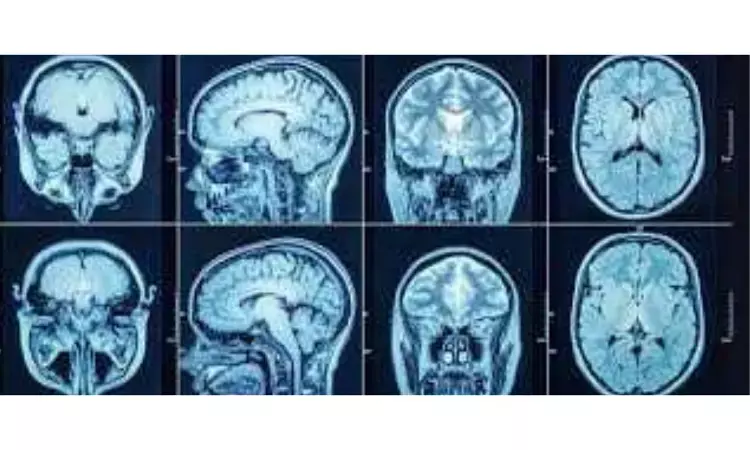- Home
- Medical news & Guidelines
- Anesthesiology
- Cardiology and CTVS
- Critical Care
- Dentistry
- Dermatology
- Diabetes and Endocrinology
- ENT
- Gastroenterology
- Medicine
- Nephrology
- Neurology
- Obstretics-Gynaecology
- Oncology
- Ophthalmology
- Orthopaedics
- Pediatrics-Neonatology
- Psychiatry
- Pulmonology
- Radiology
- Surgery
- Urology
- Laboratory Medicine
- Diet
- Nursing
- Paramedical
- Physiotherapy
- Health news
- Fact Check
- Bone Health Fact Check
- Brain Health Fact Check
- Cancer Related Fact Check
- Child Care Fact Check
- Dental and oral health fact check
- Diabetes and metabolic health fact check
- Diet and Nutrition Fact Check
- Eye and ENT Care Fact Check
- Fitness fact check
- Gut health fact check
- Heart health fact check
- Kidney health fact check
- Medical education fact check
- Men's health fact check
- Respiratory fact check
- Skin and hair care fact check
- Vaccine and Immunization fact check
- Women's health fact check
- AYUSH
- State News
- Andaman and Nicobar Islands
- Andhra Pradesh
- Arunachal Pradesh
- Assam
- Bihar
- Chandigarh
- Chattisgarh
- Dadra and Nagar Haveli
- Daman and Diu
- Delhi
- Goa
- Gujarat
- Haryana
- Himachal Pradesh
- Jammu & Kashmir
- Jharkhand
- Karnataka
- Kerala
- Ladakh
- Lakshadweep
- Madhya Pradesh
- Maharashtra
- Manipur
- Meghalaya
- Mizoram
- Nagaland
- Odisha
- Puducherry
- Punjab
- Rajasthan
- Sikkim
- Tamil Nadu
- Telangana
- Tripura
- Uttar Pradesh
- Uttrakhand
- West Bengal
- Medical Education
- Industry
Portable MRI provides life-saving information to doctors treating strokes

When patients exhibit stroke symptoms, doctors must quickly make a life or death determination: Are their symptoms caused by a clot that can be treated with blood thinners or by bleeding in the brain, which may require surgery? A new Yale-led study shows that a portable MRI device can help identify such intracranial hemorrhages, potentially life-saving information particularly in areas or scenarios where access to sophisticated brain imaging scans are not readily available.
The results were published Aug. 25 in the journal Nature Communications.
"There is no question this device can help save lives in resource-limited settings, such as rural hospitals or developing countries," said Kevin Sheth, professor of neurology and neurosurgery at Yale School of Medicine and co-corresponding author of the research. "There is also now a path to see how it can help in modern settings. It is of critical importance to continue to collect more data across a range of stroke characteristics so that we can maximize the potential benefit of this approach."
For the study, the research team examined the efficacy of a device known as the Portable Point-of-Care MRI system. According to researchers, it can be wheeled down a hospital hallway, costs a fraction of traditional MRI technologies, and can be used almost anywhere by medical technicians with even minimal training. It was developed by Hyperfine Research Inc., a part of the Guilford, Connecticut-based medical technology incubator 4Catalyzer.
The Yale team, which was led by Sheth and Mercy Mazurek, a clinical research analyst and first author, and co-corresponding author W. Taylor Kimberly of Massachusetts General Hospital, compared the results of portable MRI scans of 144 patients at Yale New Haven Hospital with results obtained from traditional neuroimaging scans. Specifically, the portable MRI was used to scan brain injury patients at the bedside.
Neuroradiologists interpreting images acquired by Hyperfine's portable MRI correctly identified 80% of intracerebral hemorrhages.
The study is the first to validate the appearance and clinical implications of a brain hemorrhage using a portable MRI device.
Sheth and his team are also investigating the potential of portable MRI technologies in helping diagnose and monitor head trauma and brain tumors, and to assess brain health in people with risk factors such as high blood pressure.
Researchers from Hyperfine also contributed to the paper. The research was primarily funded by the American Heart Association, the National Institutes of Health, and Hyperfine Research.
Hina Zahid Joined Medical Dialogue in 2017 with a passion to work as a Reporter. She coordinates with various national and international journals and association and covers all the stories related to Medical guidelines, Medical Journals, rare medical surgeries as well as all the updates in the medical field. Email: editorial@medicaldialogues.in. Contact no. 011-43720751
Dr Kamal Kant Kohli-MBBS, DTCD- a chest specialist with more than 30 years of practice and a flair for writing clinical articles, Dr Kamal Kant Kohli joined Medical Dialogues as a Chief Editor of Medical News. Besides writing articles, as an editor, he proofreads and verifies all the medical content published on Medical Dialogues including those coming from journals, studies,medical conferences,guidelines etc. Email: drkohli@medicaldialogues.in. Contact no. 011-43720751


